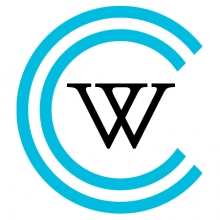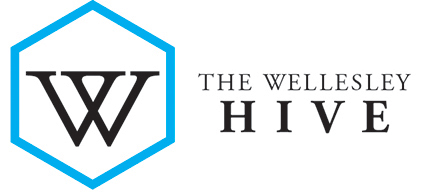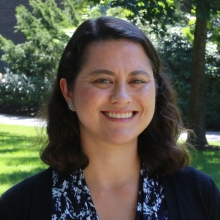Science Research

Participating in research experiences as an undergraduate is an excellent way to add depth to your science understanding and actively engage with what you are learning in the classroom. By doing so, you further develop your laboratory, analytical, and problem-solving skills, and you start to build your network with faculty members. Research experiences are valuable components to your resume, and they can make you more competitive for both graduate school and industry opportunities.
Job Shadowing

What better way to learn about a particular career path, industry, company, or role than experiencing it yourself? If you want to learn more about a specific path before committing to an internship or job, consider “shadowing” an individual who currently works in the field as a way to experience a typical workday in that career.
How to Use a Career Fair as an Exploration Opportunity

Career fairs are a great opportunity to explore and learn more about professional paths and opportunities and to practice networking. By attending a career fair, you’re able to speak with representatives from multiple organizations during one event. In your conversations, you will be able to learn about each organization — its values, work culture...etc. — and the types of opportunities they typically hire for.
Informational Interviews

Informational interviews are a common way to gather information about various careers by speaking with professionals in the field. Through informational interviews, your can explore career paths and job opportunities, as well as gain advice and insight into career industries and companies.
How to Conduct Career Research

Regardless of where you are in your career — whether you are unsure where to begin or you are preparing for a final round interview — conducting research can help you learn more about and prepare for potential career opportunities. There are many ways to gather information when you’re in the beginning stages of exploring your options, including career research and networking. In this resource, you’ll find ideas and general resources to get started.
Leverage Your Experience Abroad

Co-authored by Wellesley Career Education and the Wellesley Office of International Study.
This resource provides tips to help you leverage your study abroad experience upon your return.
Maximize Your Experience Abroad

This resource was co-authored by Wellesley Career Education and the Wellesley Office of International Study.
Learn how to maximize your study abroad experience by connecting to the Wellesley network, exploring beyond the classroom, and reflecting on your experience.
Thinking of Study Abroad?

This resource was co-authored by Wellesley Career Education and the Wellesley Office of International Study.
While it is easy to see the academic benefits of study abroad, it is also important to identify its career benefits. The National Association of Colleges and Employers (NACE) has a list of competencies that contribute to the career readiness of today’s college graduates. Global/intercultural fluency was one of the marketable competencies on the list. Furthermore, in a NACE survey, employers identified their top four competencies: critical thinking/problem solving, professionalism/work ethic, teamwork, and communications skills. The great news is that you could develop all of these skills as part of your study abroad experience.
On-Campus Recruiting Program Policies (Students)

Career Education expects all students to abide by the following rules in order to maintain the success and integrity of Wellesley’s recruiting program.
The Wellesley Hive Mentee Resource: What is Mentorship?

The Wellesley Hive is a flexible, interactive virtual space for professional networking and mentorship. Whether you are a student or an alumnae (at any career stage), the the Hive is a platform to connect with the mentors in the Wellesley network. This resource is an overview of how to use the Hive to find short-term or long-term mentorship, informational interviews, job shadowing, and more.

“In the past year I’ve spent a lot of time thinking, talking, and journaling about my career, values, and interests. The courage to see if different doors would open for me, to reach out to people and ask for their time and wisdom, was sometimes hard to come by, but my curiosity pushed me to do things that were slightly uncomfortable, and the results were worth it.”
“It was when I participated in an Alternative Break over the winter that I realized I needed to bring my passion for service back to campus.”
Artful Communication for Networking

Whenever we interact with others, we are practicing the art of communication. It is something that is best learned by trying and failing, practicing, and observing others who are skilled. When you are exploring careers and trying to find a job, you will be meeting people and building relationships. Improving your communication skills as you try to meet people who share your professional interests should be an ongoing lifelong goal.
Crafting Your Pitch

A pitch is brief — think 30 seconds — and gives a quick glimpse into your background, highlights your strengths and value, clearly outlines your goals and serves to develop a relationship with your audience. A pitch sums up your unique promise of value and gives the audience a clear understanding of your motivations and goals.
Introduction to Networking

For some, the idea of networking is exciting. For others, the mere mention of the word can be anxiety provoking. In either case, it is important to know:
- Why networking is important to your lifelong career success
- What networking actually is, and what it is not
- Where you can effectively network
- Skills and strategies for networking
Finding an Internship

While the College supports hundreds of students through our funded internship programs, the opportunities to intern around the world are endless. We understand it can be overwhelming to get started, so here are a few ideas to jumpstart your search.

Think of your LinkedIn profile as a virtual “resume” that includes information about your education, experiences, skills, and much more. Keep in mind that your LinkedIn profile, similar to your resume, is an opportunity to brand yourself. So before you begin building your profile, you should think about how you want to communicate your brand. Ask yourself: What sets you apart from your peers? What unique contribution do you bring to the table?
Introduction to Interviewing

Career Education's Interviewing Resources are centered around The Four Pillars, or Four P’s (Preparation, Presentation, Proficiency, Partnership) of Interviewing, which serve as the foundation for a successful interviewing experience.
“From the beginning, my career mentor was there to brainstorm, encourage, and motivate me to pursue an internship that aligned with my interests.”
“She said, ‘If you could do anything in the world, what would you be?’ I immediately said, ‘A nurse, but it’s too late.’ She said, ‘No it’s not.”






